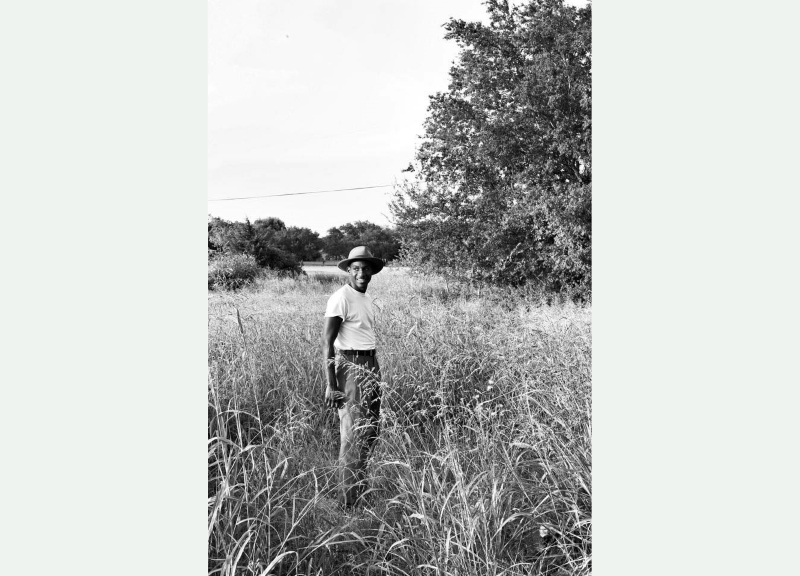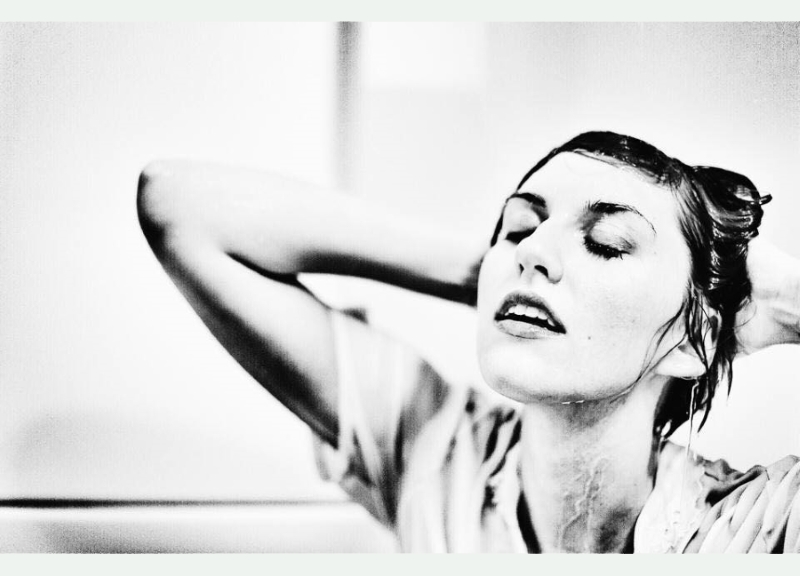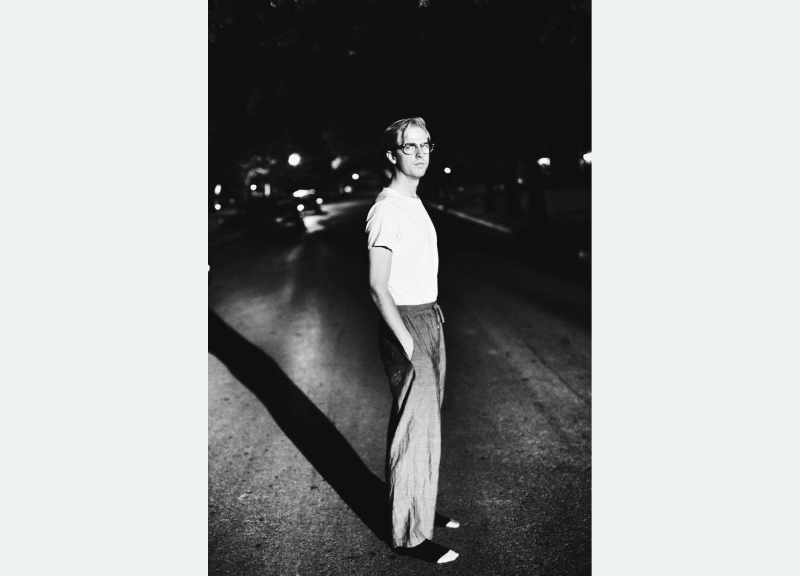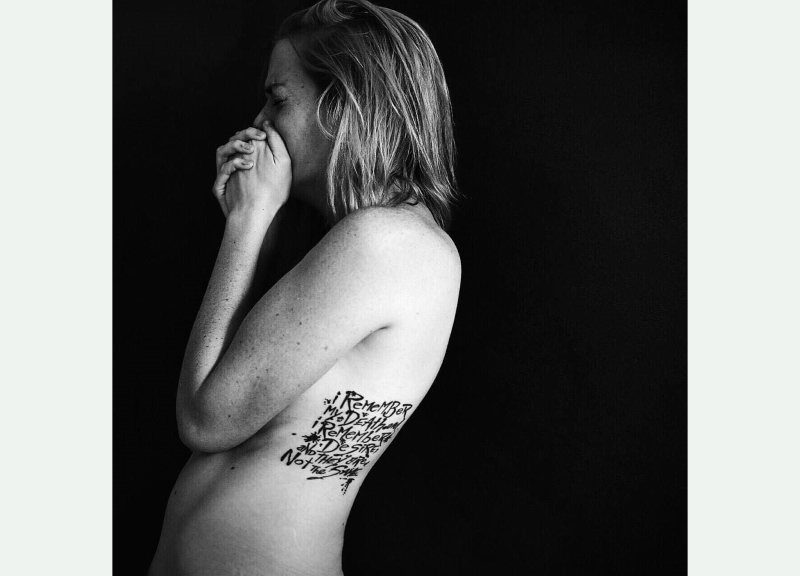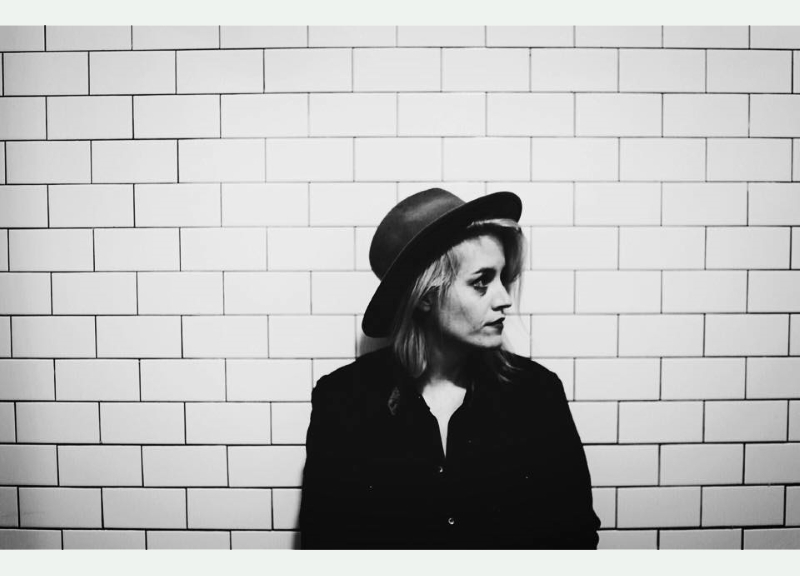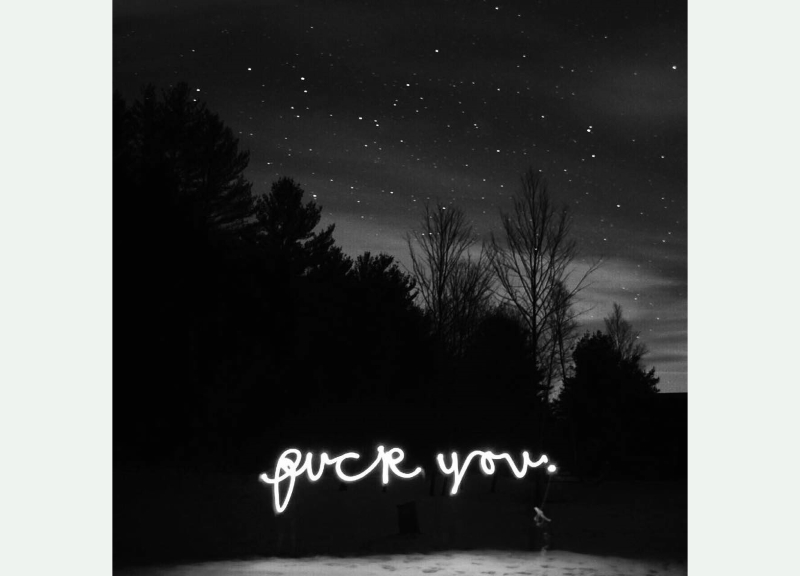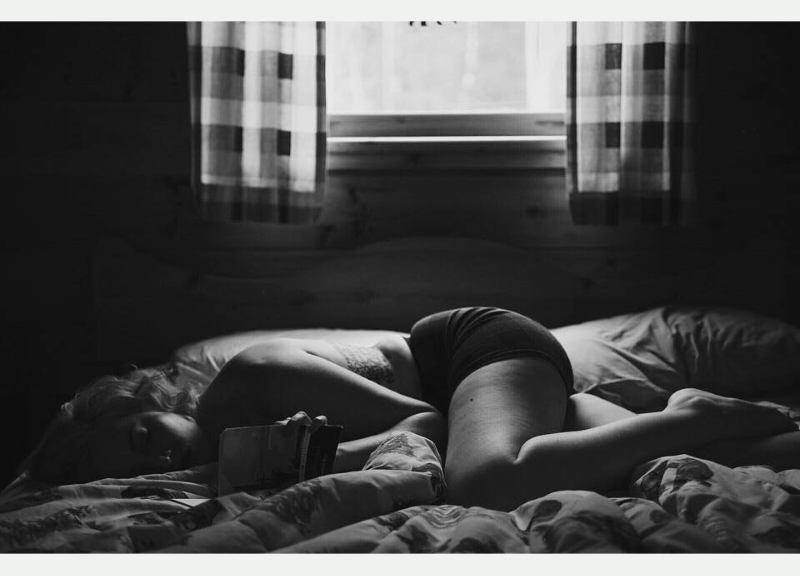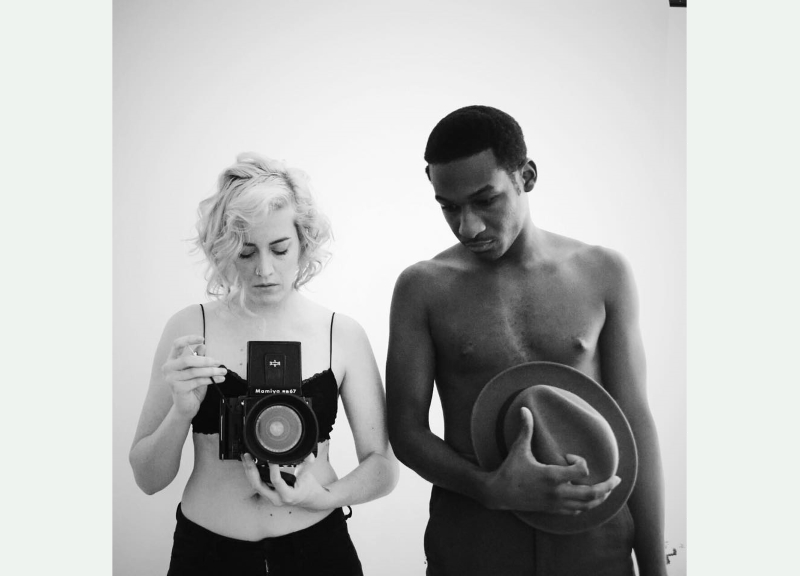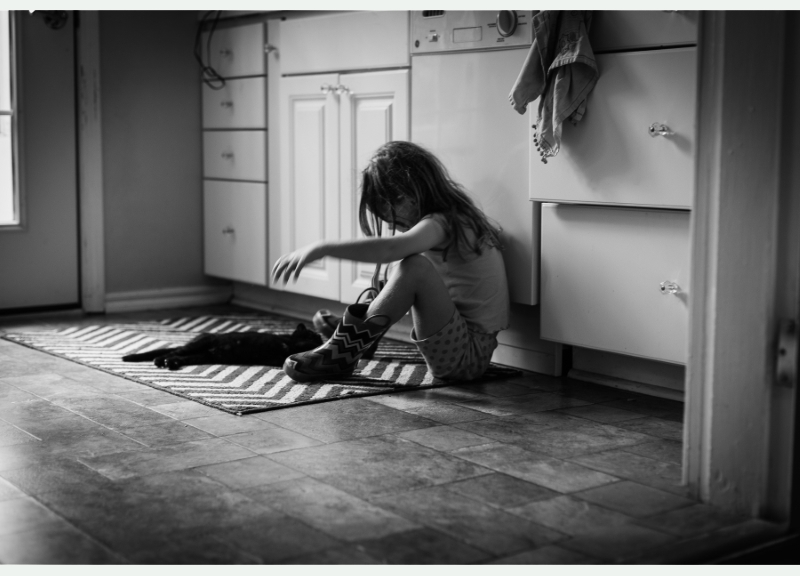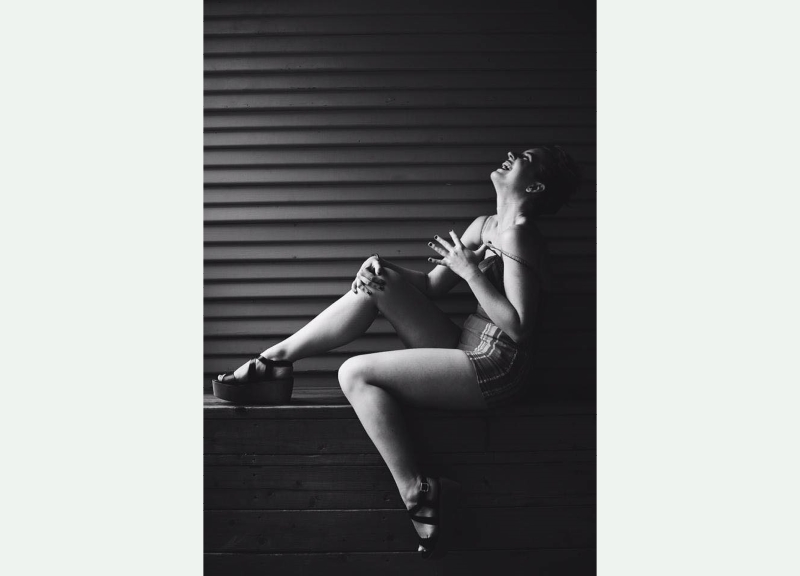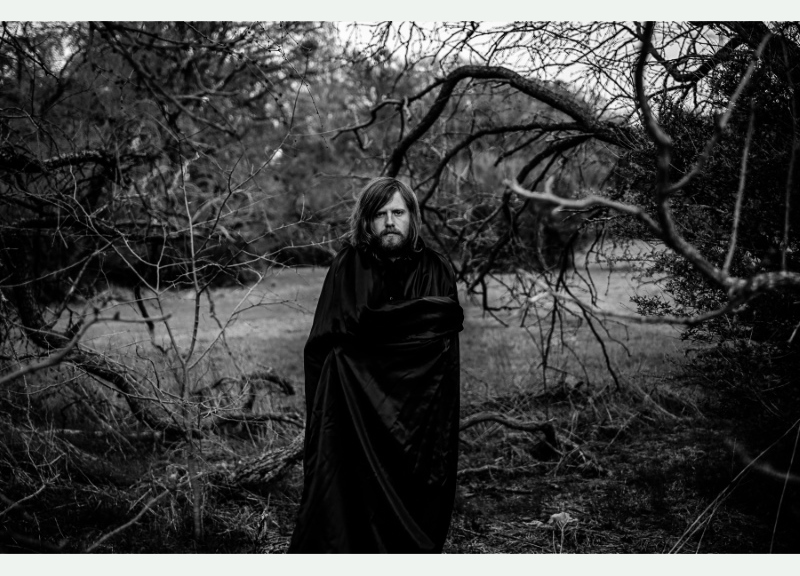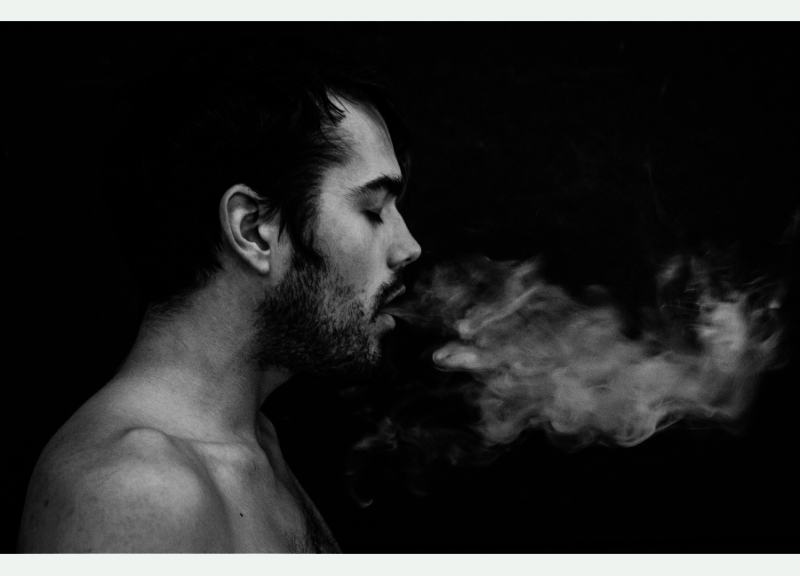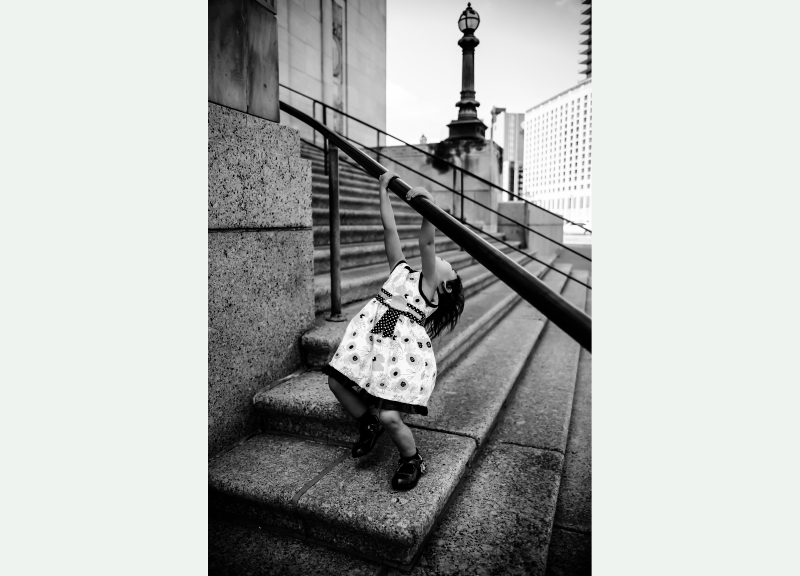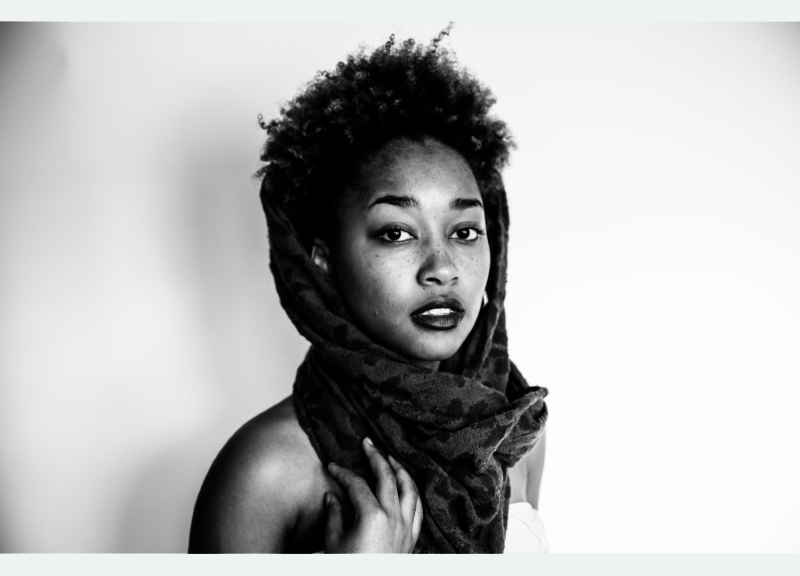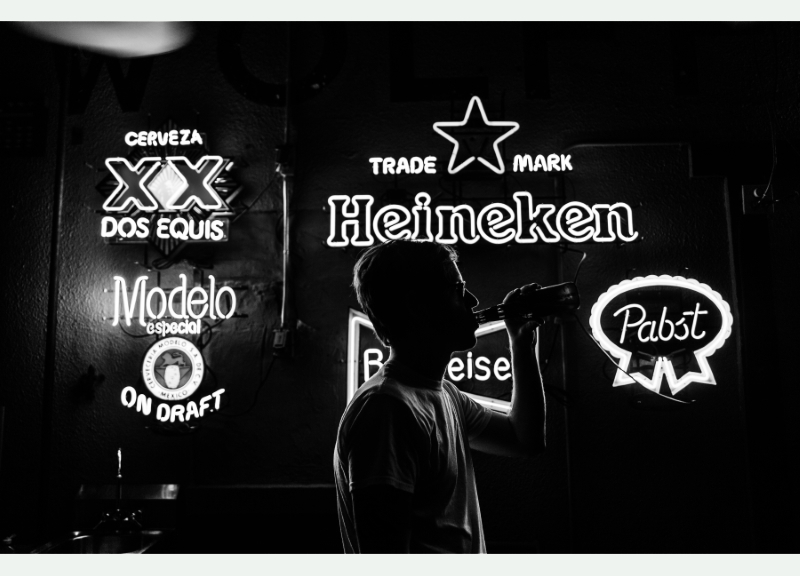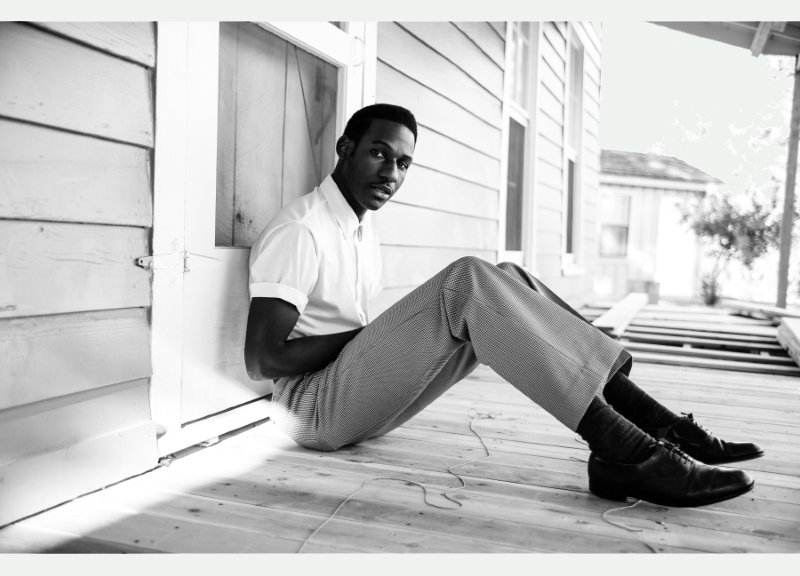Meet Erin Margaret Alison Rambo, Your Favorite Local Musicians' Favorite Photographer.
As much attention as recent Columbia Records signee Leon Bridges gets for his '60s-inspired soul music, it's also clear that his personal style and vintage aesthetic have played just as heavily into his success. Hey, like Bridges recently told NME, a lot of his success can be traced back to a certain pair of high-waisted pants he wore to the bar one night.
More important than any pair of pants, though, is the carefully crafted look of Bridges' online visual presence. Most every one of those black-and-white shots of the musician strumming a vintage guitar, sitting in the bed of an antique pickup or enjoying a Coke from a glass bottle was shot by the same person, too — a Fort Worth-based photographer named Erin Margaret Alison Rambo, who prefers answering only to her last name, thank you very much.
Like Bridges, Rambo is an old soul who is somewhat new to her craft. Whereas Bridges has only been playing the guitar for about four years, Rambo first picked up a camera just two years ago. But she's learned quickly, taking promo shots and shooting album artwork for area bands such as The Fox & the Bird and Daniel Markham as well as ample additional portrait work.
And in that short time, she's crafted a deeply personal, largely black and white aesthetic that draws heavily on her desire to depict the realness of the human experience. Hers is one that perfectly complements Bridges style, sure. But it also makes her other work stand out as especially eye-grabbing.
For that reason, we reached out to Rambo to find out more about her own fascinating trajectory, and what inspires her work.
When did you know you wanted to be a photographer? Are you self-taught, educated or a little bit of both? What kind of camera(s) are you currently working with? What appeals to you most about black-and-white photography? What was the best piece of photographic advice someone has given you in the last five years? Tell us about your relationship with Leon Bridges. How did you guys meet, how did you become his go-to photographer? What's it like to work with him? A big of part of Leon's online presence is shaped by the endless stream of your black-and-white photographs that appear on his social media feeds. How'd that aesthetic come together? How does Leon inspire you? And now you're doing the photos for Leon's upcoming debut seven-inch for Columbia Records. What can you tell us about that? Of all your images, are there any that hold particularly special meaning to you? What went into getting them?
I think knowing when I wanted to be a photographer is the same as asking a musician when they knew they loved music. It just is part of you. It's cheesy, but true. I didn't pick up a camera until two years ago, but when I reflect now, I realize I've always been a photographer. I've always seemed to notice details and am very easily visually distracted; I just didn't realize it was my art until I started doing it. Taking photos clicked for me in a way I think I had kept waiting for music to — and yes, you can officially end sentences with a preposition now. See? Distracted. I use a gazillion words to say one sentence. Photography enables me to speak with better intention. I'm really drawn to this medium's ability to bring together language and emotion and time into a single moment.
Unfortunately, I am completely self-taught. I probably should still take a lesson. It was a shit ton of cussing at first. I'm too hard on myself. I'm also pretty smart, so I'm not used to having to try at things, which can create a certain kind of laziness. Photography has been humbling and good for me in that way; if you want something, you'll figure out how to take yourself down a few notches, and be disciplined enough to keep trying. And that's pretty much what I did. I knew how I wanted my photos to look, so I kept messing with the parameters until the photos matched my vision. I'm still figuring it out. I've also been lucky to have found a community of photographers that I can go to with questions and experiment with without concern of too much judgment.
I'm currently working with a Canon 6D. It does incredible things in low light, which rules because my brain turns on at night. Plus, it isn't very heavy, so when I'm exploring, I'm not weighed down too much. That's important when on a silo ladder 100 feet in the air. I also love to take Polaroids — instant gratification and all that. For that, I use an old Mamiya RB67 camera. It was adapted to be able to take film and Polaroids, so it's not just a click-and-go camera. Working with film is vital for getting better at digital photography; you have to know your light to work within that medium, and your mistakes aren't cheap since film can be pricey. Hands down, working with film has made me so much better with choosing light and parameters on the digital end. You should know where the art has come from to understand where it's heading. History matters.
There are a ton of reasons. My grandmas both had a pretty big hand in raising me, so I went where they went, which was a lot of estate sales and domino games. I just love the older aesthetic. Simply put, black and white works for my brain better than color does; I'm drawn to the contrast, the depths of the simplicity. The world is so confusing and grey, there's something very confident and stated about the world of monochrome. It's timeless, unchanging, still — even if only for the brief creation of that photograph.
The best advice I hear, I hear often, which is don't quit. I'm always about two seconds away from smashing my camera. I'm realizing this is part of being an artist, never being content, constantly pushing for better. I also pour so much of who I am and how I feel into my work. It's so deeply personal, I can get really touchy with it. It's hard for me to be that open — I'm fun and extroverted — but sharing the emotional depths, that's not in my nature. However, the whole reason I do this is to bring more reality into this pressurized, cultural construct, so people know they aren't alone and they aren't crazy for being different. I started taking photos because a trauma left me with mental issues to work through. It's embarrassing to struggle in your own damn head. I hoped by being honest and putting into images the words I couldn't find to say about my struggle, that I could change things and maybe help other people — hell, maybe help myself. I thought, “I know the worst parts of the world now; maybe I can start intentionally sharing the good, the double standards, the stereotypes.” But there are times where I just want to shut down and not have anyone see me or my work. It feels like I let people in too far and the risk of rejection can be overwhelming. Of course, then I see a generation only depicted by iPhone bar photos and I know I have to keep going. We have to have good pictures of ourselves. When my grandma died, that's all I had of her to hold onto. It's so important to document life. It's full of wonder.
Where to begin? I guess the simplest way to put it is he makes me better, and I make him better. And that works for us. I met him because a mutual friend on Facebook liked a photo of him. I saw it, and really dug his fashion style that so closely mirrored my own style of old-school photography — so I messaged him about hanging out. We both made sure the other person wasn't creepy, and the rest is history. It wasn't intentional to become his go-to photographer; I just think our lives are intertwined. He's my best friend, who I spend my time with, so I naturally have a lot of photos of him and the places we go together. We're both adventurers.
Knowing one another makes it easy to work together, for sure. He studies how I take photos. I study how he moves. Our aesthetic comes from endless style discussions, watching movies, sending each other photos that inspire us and, honestly, just spending time together. We talk a lot during shoots — “Do you like this better? Or this better?” — and we also keep moving so no one feels stuck or gets in a rut. Neither of us likes forced work. I always say, if you want interesting photos, you should make sure to have an interesting life. Our life together greatly interests me, so I think we have made some great work. He's an excellent muse because of our similarities. We're both very hopeful people; we both believe in more than just ourselves and the importance of that. It's a good balance. I bring him out of his shell, and he puts me back in mine. He lets me be as nuts as I want. He really believes in me, and vice versa. I truly enjoy the music he makes; I'm inspired greatly by it. I believe in him. We have the same goals in the art we make, so it comes together really naturally. There's freedom in it.
Not much yet. Columbia Records decided to pay me to do what I do based on my previous work of Leon, which I understand to be rare. Plus, Leon's my biggest advocate. I'm so grateful for his faith in me, but I think some big changes are on the horizon. People are getting tired of perfection, they want something real. It's great; because not only am I tired of unrealistic standards, I'm also terrible at Photoshop and am too honest for my own good.
I'm terrible at favorites. The photos I like best are not typically what are the most popular. You asked me earlier what my favorite subject matter was to shoot, and that's people. The photographs I prize most are of the people I love. People are what make the earth something beyond this organic planet. Plus, I'm a massage therapist for a living, so the human body in general truly fascinates me. Human beings are the worst — myself included. But love isn't. What we're capable of makes the human race really great. The moments I capture humans being honest, raw, loving, sad — that's what is special to me, because it's what's special about all of us. Seriously, I'm so cheesy. All the photos that I prize took a part of me to get them and the person I was photographing — that connection. I think that's an excellent price for art.
